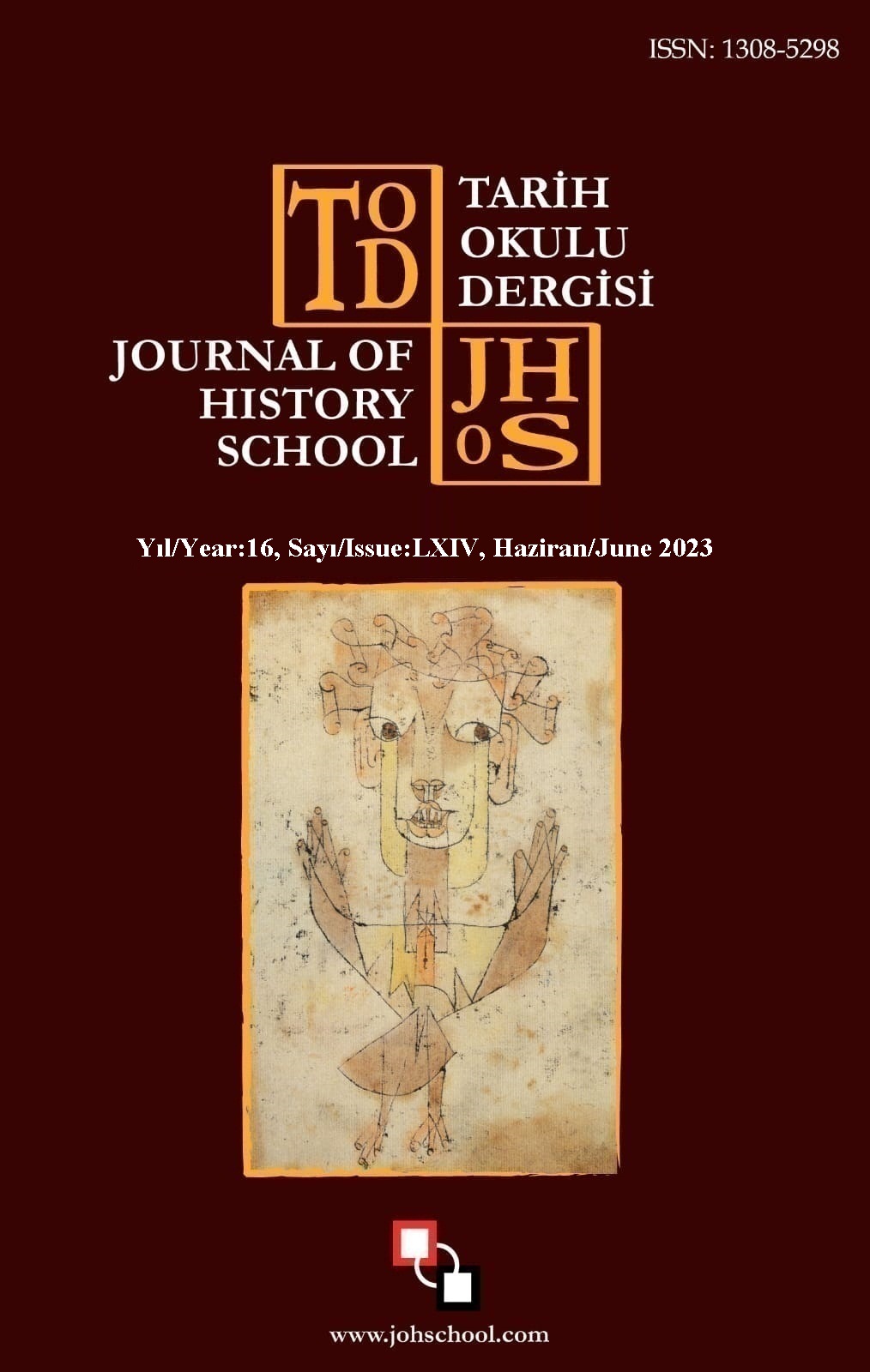DİJİTAL OKURYAZARLIK BECERİLERİ BAĞLAMINDA AÇIK ÖĞRETİM ORTAOKULU TÜRKÇE DERS KİTAPLARININ İNCELENMESİ
Author :
Abstract
Bu araştırmada; Türkçe Dersi Öğretim Programı’na (2019) uygun olarak yazılan açık öğretim ortaokulu 6, 7 ve 8. sınıf Türkçe ders kitaplarındaki etkinliklerin dijital okuryazarlık becerileri bağlamında değerlendirilmesi amaçlanmıştır. Bu amaç doğrultusunda açık öğretim ortaokulu ders kitaplarında dijital okuryazarlık becerilerine uygun olan etkinliklerin neler olduğu sorusuna yanıt aranmıştır. Dijital Okuryazarlık, Beceriler ve Hazırlık için Küresel Standartlar Çerçevesinde Türkçe Dersi Öğretim Programı (2019) incelenip dijital okuryazarlık becerileri ile ilgili olan kazanımlar belirlenmiş ve bu kazanımlar çerçevesinde ders kitapları incelenmiştir. 5. sınıf Türkçe ders kitabı örgün eğitimde de kullanıldığı ve bu kademeye yönelik benzer çalışmalar yapıldığı için çalışma kapsamına alınmamıştır. Betimsel nitelik taşıyan bu çalışmada nitel araştırma yöntemlerinden birisi olan doküman incelemesi kullanılmıştır. Çalışmanın veri kaynağı 2022-2023 eğitim-öğretim yılından itibaren okutulan ve Millî Eğitim Bakanlığı tarafından yayımlanan açık öğretim ortaokulu 6, 7 ve 8. sınıf Türkçe ders kitaplarıdır. Bu kitaplarda yer alan dinleme/izleme, okuma, konuşma ve yazma etkinlikleri incelenmiştir. Yapılan incelemelerde; açık öğretim ortaokulu 6, 7 ve 8. sınıf Türkçe ders kitaplarında toplam 72 okuma metni ve 518 etkinliğin bulunduğu belirlenmiştir. Bu etkinliklerden 28’inin, oransal olarak %14,28’inin dijital okuryazarlığa uygun olduğu görülmüştür. Açık öğretim ortaokulu 6. sınıf Türkçe ders kitabında 156 etkinlikten 23’ünün (%14,74) 7. sınıf Türkçe ders kitabında 144 etkinlikten 21’inin (%14,58) ve 8. sınıf Türkçe ders kitabında 218 etkinlikten 30’unun (%13,76) dijital okuryazarlığa uygun olduğu anlaşılmıştır. Sonuç olarak dijital okuryazarlıkla ilgili etkinlik sayısının yeterli olmadığı tespit edilmiştir. Elde edilen bulgular bağlamında açık öğretim Türkçe ders kitaplarının hazırlanmasına yönelik çeşitli öneriler sunulmuştur.
Keywords
Abstract
In this study, it is aimed to evaluate the exercises in the 6th, 7th, and 8th grade Turkish textbooks of distance education secondary school classes written in accordance with the Turkish curriculum (2019) in the context of digital literacy skills. For this purpose, an answer was sought to the question of what activities are appropriate for digital literacy skills in distance education secondary school textbooks. Within the context of digital literacy, lobal Standards for Skills and Preparation, the Turkish curriculum is examined, the outcomes related to digital literacy skills are determined and the textbooks are examined within the framework of these outcomes. The 5th grade Turkish textbook is not included in the study because it is also used in formal education and similar studies have been conducted for this level. In this descriptive study, document analysis, one of the qualitative research methods, is used. In the study, 6th, 7th, and 8th grade Turkish textbooks determined by the Ministry of National Education, which have been taught since the 2022-2023 academic year, is used as data sources. In these books, listening/monitoring, reading, speaking and writing activities are analyzed. According to the examinations, it is seen that there are 72 reading texts and 518 activities in the distance education secondary school 6th, 7th and 8th grade Turkish textbooks and only 14,28 percent of these are found to be suitable for digital literacy. It is determined that 23 out of 156(%14,74) activities in the 6th grade Turkish textbook of distance education secondary school were suitable for digital literacy, 21 out of 144(%14,58) activities in the 7th grade Turkish textbook are suitable for digital literacy, and 30 out of 218(%13,76) activities in the 8th grade Turkish textbook are suitable for digital literacy. It is observed that the number of activities related to digital literacy is extremely low. As a result, it has been determined that the number of activities related to digital literacy is not sufficient. In the context of the findings obtained, various suggestions were presented for the preparation of Turkish textbooks of distance education.





